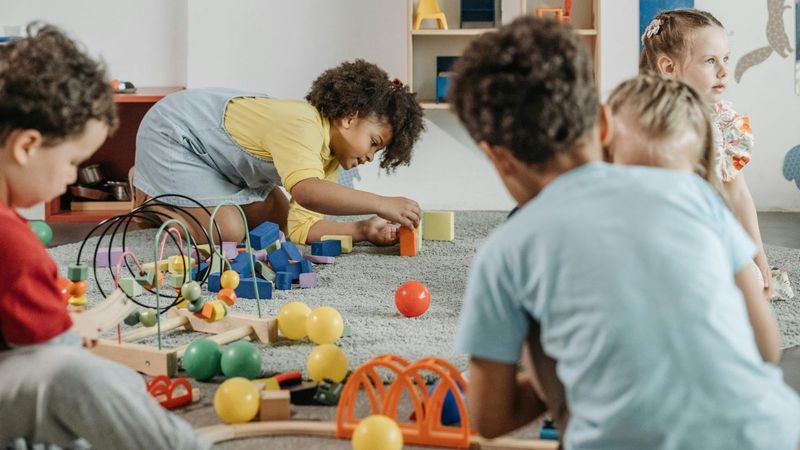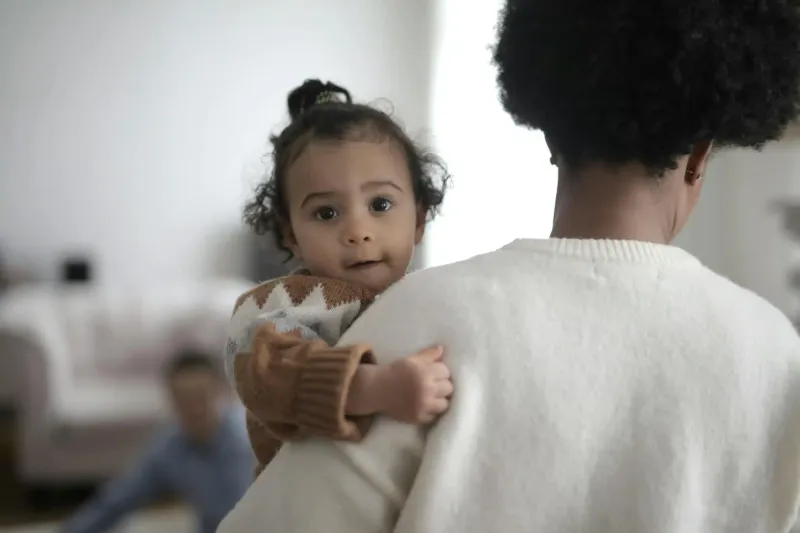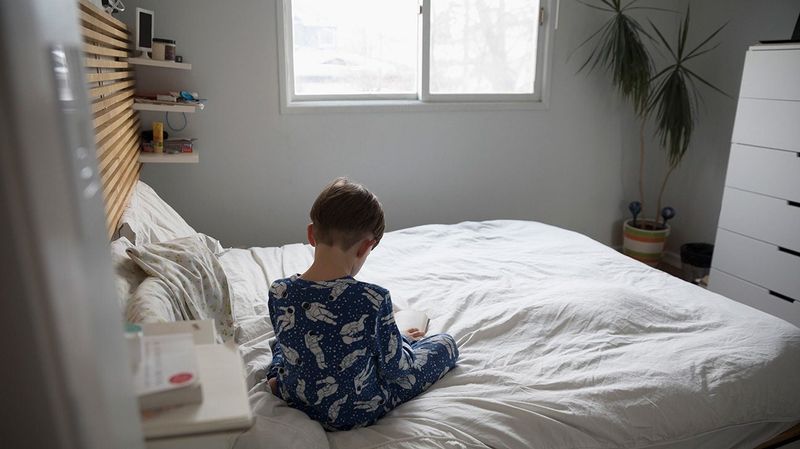12 Things Kids Often Learn to Suppress in Emotionally Distant Households

Growing up with emotionally immature parents creates unique challenges that shape how children interact with the world. These children often develop protective strategies to navigate their unpredictable home environments. They learn to mask parts of themselves to avoid criticism, rejection, or conflict, creating invisible barriers that can follow them into adulthood.
1. True Feelings

Laughter masks tears when showing real emotions becomes dangerous territory. Children quickly realize that expressing sadness might be labeled as “too sensitive” while anger gets dismissed as “dramatic” or “disrespectful.” Even joy might be dampened by a parent’s jealousy or indifference.
The emotional hiding game becomes second nature. These children develop an incredible ability to appear calm on the surface while turbulent emotions churn underneath. They perfect a neutral face that reveals nothing of their inner world.
Over time, this disconnection from genuine feelings creates confusion about what they actually feel. The child who once hid tears from others eventually struggles to recognize their own sadness, creating a legacy of emotional confusion that can last well beyond childhood.
2. Needs for Comfort or Support

“I’m fine” becomes the automatic response when these children are hurting. Early experiences teach them that reaching out for comfort often leads to rejection or being told they’re overreacting. Their genuine needs for reassurance and support get buried beneath layers of self-reliance.
Physical and emotional comfort becomes something they stop seeking altogether. A scraped knee or a broken heart? They’ll handle it alone, convinced that needing others makes them weak or burdensome.
The child learns to comfort themselves in isolation, developing a premature self-sufficiency that looks like strength but actually stems from abandonment. This pattern follows them into adulthood, where asking for help feels impossible and independence becomes their prison rather than their freedom.
3. Authentic Personality

Chameleon-like adaptability becomes their superpower. These children study their parents’ reactions, learning which parts of themselves earn approval and which trigger rejection. The quirky, creative child learns to hide their imagination if it’s met with eye-rolling. The naturally boisterous child becomes quiet if enthusiasm is labeled as “too much.”
They craft personas that feel safer—the perfect student, the helpful caretaker, the invisible child. Their genuine interests, humor, and natural temperament get buried beneath these protective masks.
Tragically, many lose touch with who they truly are. Years of shape-shifting to please others disconnects them from their authentic core. As adults, they often struggle with a profound question: “Who am I when I’m not trying to be what someone else needs?”
4. Personal Opinions or Beliefs

Silence replaces self-expression when children learn that disagreeing brings punishment. A simple “I don’t like that” might trigger a parent’s rage or withdrawal of affection. Having different preferences or perspectives becomes risky business in homes where conformity is demanded.
These children become masters at reading the room. They learn to echo their parents’ views, nodding along to avoid conflict while their true thoughts remain locked away. The dinner table becomes a place of careful agreement rather than genuine conversation.
The habit of hiding opinions creates adults who struggle to recognize what they actually believe. Years of suppressing their voice leaves them disconnected from their own perspective. Many find themselves easily swayed by others’ opinions, having never developed the confidence to stand behind their own.
5. Accomplishments and Successes

“Don’t brag” becomes the mantra for children whose achievements trigger parental jealousy or dismissal. The straight-A report card might be met with “why not all A+?” or a parent’s story about their own greater success. Athletic victories might be downplayed or criticized for minor imperfections.
The child learns to downplay their wins. That art contest they won? Better not mention it. The teacher’s praise? Keep it quiet. Their successes become secret joys, celebrated internally if at all.
This pattern creates adults who struggle to acknowledge their own achievements. They minimize their accomplishments, feeling uncomfortable with recognition. Many battle impostor syndrome, unable to internalize success because they were taught that owning their talents was somehow wrong or threatening to the family dynamic.
6. Mistakes and Vulnerabilities

Perfectionism becomes armor when errors lead to shame rather than learning. Children of emotionally immature parents often experience disproportionate reactions to normal mistakes—a spilled drink might trigger a parent’s rage, a failed test could bring days of criticism or emotional withdrawal.
These children develop an intense fear of getting things wrong. They double-check everything, overthink decisions, and avoid risks that might expose their imperfections. Making mistakes in front of others becomes terrifying.
The pressure creates adults who struggle with rigid standards and intense self-criticism. They often appear highly competent while internally battling anxiety about potential failures. This perfectionism extends beyond tasks to relationships, where vulnerability feels dangerous rather than connecting. Their mantra becomes: “If I never show weakness, I can’t be hurt for it.”
7. Emotional Reactions

“Stop crying or I’ll give you something to cry about” teaches children that emotional displays have consequences. Tears might be mocked, anger punished, and even excitement dampened with criticism. These children learn to swallow their reactions, maintaining a carefully neutral expression regardless of what they feel inside.
They become experts at emotional containment. The hurt child who wants to cry waits until they’re alone in their bedroom. The angry teenager who needs to vent keeps silent until they can safely express it elsewhere.
This emotional suppression follows them into adulthood as an automatic response. Many struggle to identify what they’re feeling because they’ve spent years disconnecting from their emotional responses. In relationships, they might appear calm during conflicts while internally experiencing intense reactions they cannot express or sometimes even recognize.
8. Curiosity and Questions

“Don’t ask so many questions” shuts down the naturally inquisitive mind of a child. When curiosity is met with irritation or dismissal, children learn that their desire to understand the world is somehow wrong or burdensome.
These children become cautious about expressing wonder or confusion. They might develop a habit of seeking answers privately through books or observation rather than asking directly. Their questions get swallowed, their confusion worked through alone.
The suppression of natural curiosity can limit intellectual and emotional growth. Many carry this pattern into adulthood, where they might hesitate to ask questions in educational or professional settings for fear of appearing troublesome. Some develop a habit of pretending to know things rather than risking the vulnerability of admitting ignorance, creating barriers to genuine learning and connection.
9. Personal Boundaries

“No” becomes a forbidden word in households where children’s boundaries are consistently violated. These children learn that protecting their personal space, time, or body often leads to guilt-tripping, anger, or emotional manipulation from parents who prioritize their own needs.
The child’s developing sense of self gets compromised. They learn to ignore their own discomfort to keep peace, allowing unwanted hugs, sharing private information when pressured, or sacrificing their time and energy when they’re already depleted.
This boundary confusion creates adults who struggle to recognize when they’re being mistreated. Many find themselves in relationships where they give endlessly while receiving little in return. The internal alarm system that should alert them to violations remains muted, making them vulnerable to those who would take advantage of their difficulty saying “no” and meaning it.
10. Friendships and Relationships

Secret friendships develop when children learn that their connections outside the family trigger parental jealousy or criticism. A mother might interrogate about time spent with friends, a father might mock a child’s choice of companions, or parents might create obstacles to social activities.
These children become protective of their relationships. They share minimal details about friends, avoid bringing them home, and navigate a complex web of half-truths to maintain connections that sustain them. Their social lives become compartmentalized, kept separate from family life.
Many carry this pattern of relationship-hiding into adulthood. They might struggle with integrating different parts of their lives or feel anxious when worlds collide. The habit of compartmentalizing relationships can create challenges in developing deep intimacy, as the protective instinct to keep important connections private remains active long after leaving the original environment.
11. Physical and Emotional Pain

“You’re fine” teaches children their suffering doesn’t matter when parents minimize their pain. A child with a fever might be accused of exaggerating, while emotional hurts get dismissed with “stop being so sensitive” or “other people have it worse.”
These children develop a dangerous disconnect from their own suffering. They push through illness, ignore injuries, and minimize their emotional wounds. The child with a sprained ankle keeps walking; the bullied teenager insists everything is fine.
This pattern creates adults who neglect their well-being. Many ignore warning signs of physical illness until conditions become severe. Emotionally, they often tolerate harmful treatment in relationships, having learned that their pain doesn’t deserve attention. The ability to recognize and respond appropriately to their own suffering—a crucial self-protection mechanism—remains underdeveloped.
12. Hopes and Dreams

Passion becomes private when aspirations are met with mockery or discouragement. “You’ll never make it as an artist” or “That’s not a real career” teaches children to protect their dreams from parental criticism. Their deepest hopes become secrets, sheltered from the harsh judgment that might destroy them.
These children learn to pursue their interests quietly. The budding writer hides their stories, the aspiring musician practices when no one’s home. Their ambitions become stealth operations, pursued in the shadows rather than with supportive guidance.
Many carry this protective secrecy into adulthood, hesitating to share goals until success is guaranteed. Some abandon meaningful pursuits entirely, the weight of internalized criticism too heavy to overcome. Others achieve despite these barriers but struggle to fully enjoy their success, constantly anticipating the dismissal they learned to expect when expressing what mattered most to them.

Comments
Loading…